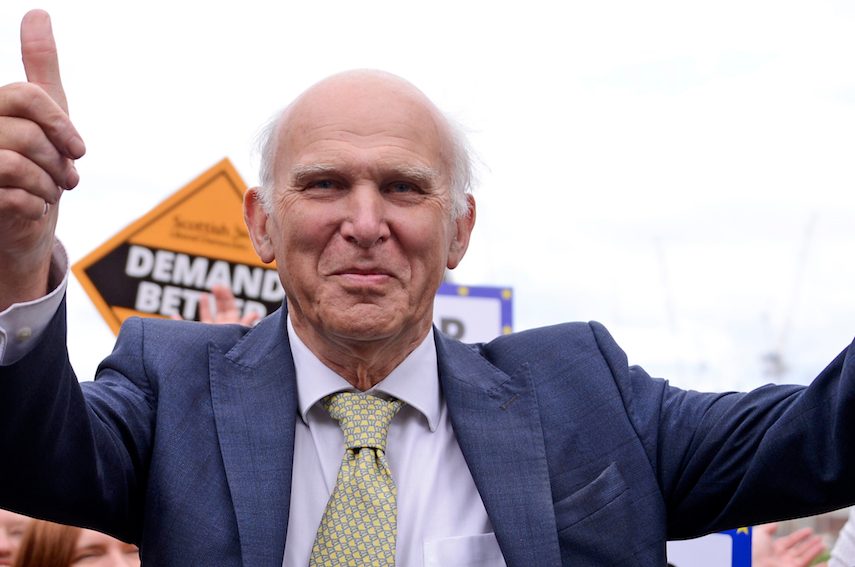- Liberal Democrats are the most popular party in Britain, according to a shock new poll.
- The YouGov poll puts Vince Cable’s party on 24%, ahead of the Brexit Party on 22%.
- Labour and the Conservatives are trailing on 19%.
- It suggests Britain is heading for another hung parliament with a minority Labour government.
- Visit Business Insider’s home page for more stories.
LONDON – An extraordinary new opinion poll has put the Liberal Democrats in first place, in the wake of major gains for the party in the European elections.
The YouGov pollfor The Times puts Vince Cable’s party on 24%, ahead of the Brexit Party on 22%, with Labour and the Conservatives both trailing on 19%.
It is the first time the Liberal Democrats have led a national opinion poll in the UK since the height of “Cleggmania” in the run-up to the 2010 general election.
YouGov poll (changes with 17 May)
- Lib Dems: 24% (+6)
- Brexit Party: 22% (+4)
- Conservatives: 19% (-5)
- Labour: 19% (-5)
- Greens: 8% (+2)
- UKIP: 1%
- Change UK: 1%
The polls finds the Lib Dems are benefiting from a surge in support from those voters who backed Remain in the EU referendum and the Labour party in the 2017 general election.
41% of Remain voters now back the Lib Dems, with 27% of former Labour voters also switching over. The party also reported a surge in membership, with 11,000 new members joining since the party's success in the local elections.
"Our clear, unambiguous Stop Brexit message resonated with millions of voters and secured a great result for the Liberal Democrats," Lib Dem leader Vince Cable said in a statement.
The party will hold their first hustings event on Friday evening in the race to replace Cable as leader. MPs Jo Swinson and Ed Davey are both competing for the job.
If repeated at a general election, today's poll would result in a hung parliament with no single party able to form a government.
Despite being in fourth place, Labour would be expected to win 202 seats with the Liberal Democrats on 119 seats and the Conservatives on 110, thanks to the nature of Britain's First Past The Post voting system, according to the Electoral Calculus website.

